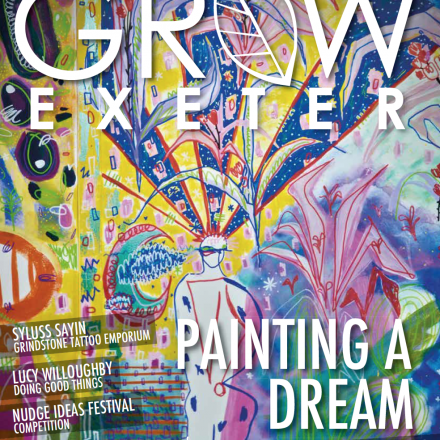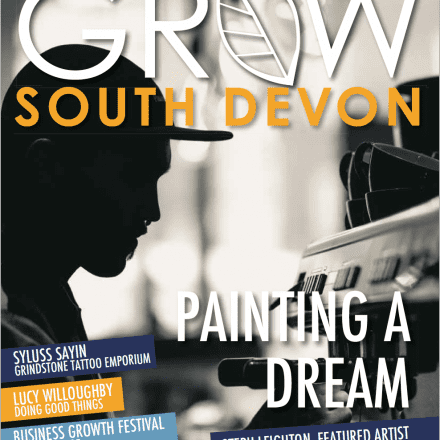
Girl Power.
Written by Rosie Findlay
Images provided by The Paul Hodges Trust
Established in 2018, Bath based, The Paul Hodges Trust seeks to end poverty through empowering women living in some of the world’s poorest communities. Working in remote rural villages and urban slums in Ghana, Uganda and Sierra Leone, its all-female Tailoring Apprenticeships are giving women the chance to turn their lives around.
Focusing on young mums, child brides and victims of violence, the charity provides a fully funded 12-month vocational training course. During the course, women learn basic literacy, numeracy and business skills, alongside becoming expert tailors. On graduation the women are provided with a sewing machine, ready to set up their own small business.
Charity founder Jenny Carlen explained the motivation behind the project, “The fact that we live in a world of abundance, yet millions live in extreme poverty is a manmade atrocity. But the good news is we have the power to UNMAKE it and build a different future. All the evidence shows us that one of the best ways to do that is enabling women to have independence and economic opportunities. Empowered women are true agents of change in their families, communities and countries. Empowered mums will invest in their children’s health and education – breaking the cycle of poverty. This is exactly how our fantastic Tailoring Apprenticeships work; we provide resources and training and women shine and let their talent do the rest!”
In 2020, the arrival of COVID-19 brought huge challenges for everyone, but especially those already struggling to get by in Africa’s poorest communities. Many African governments moved fast to make face masks mandatory in public, but commercially produced plastic masks were neither available nor affordable in the communities where the charity worked. Recognising the chance to turn adversity into opportunity, while protecting people locally and in the UK, The Paul Hodges Trust launched the ‘Face Masks for Better Futures’ campaign whereby the trainee tailors were paid a fair wage to produce triple-layered reusable fabric face masks.
Over the course of 2020, more than 2500 face masks were made and distributed to vulnerable communities in Ghana and Sierra Leone, with a further 600 shipped and sold in the UK, via The Paul Hodges Trust’s Etsy shop.
Jenny said, “This campaign was driven by necessity, it was something completely new for us as a charity, but really it is has turned into a great win-win. It provides jobs and livelihoods for women who were previously living in poverty, it has ensured a supply of PPE to protect against COVID-19 and, as our masks are reusable and plastic-free, it helps to protect the environment too.”
With the UK slowly lifting out of our own restrictions, people are looking longingly to the horizon, where face masks are no longer an everyday necessity. And so again, the talented tailors are innovating and adapting their skills to craft exciting new ethical items for customers. Always beautifully patterned, bright and colourful, the locally sourced fabrics have been re-imagined into a variety of products such as tote bags, bunting flags and hair scrunchies.
Jenny said, “COVID-19 gave us the impetus to start this new initiative, which has taught us so much about being entrepreneurial as a charity. We’re delighted to be expanding our online shop, which means we can support more women. Buying from us is a very direct way you can help change the lives of women and their families – while getting your hands on amazing, uplifting and unique handmade products”.
Every single penny made in the online shop goes directly to Trust projects, firstly paying fair-wage incomes to the artisans and women-leaders, with any additional profit invested into the Trust’s other projects working to end child marriage, support girls’ education and provide health services.
And if you need any more convincing, we’ll give the final word to Talata, a 2020 tailoring graduate in Sierra Leone: “After I fell pregnant and had to drop out of school at 15, I thought my future was lost. My parents rejected me and the father of my child denied me. I was hopeless. Now that I have the opportunity to learn a skill and work with other women, everything has changed. I can look after myself and my baby. When I learnt that my products were being sold in the UK, I couldn’t stop smiling. From the very bottom, now my life is back on track.”











